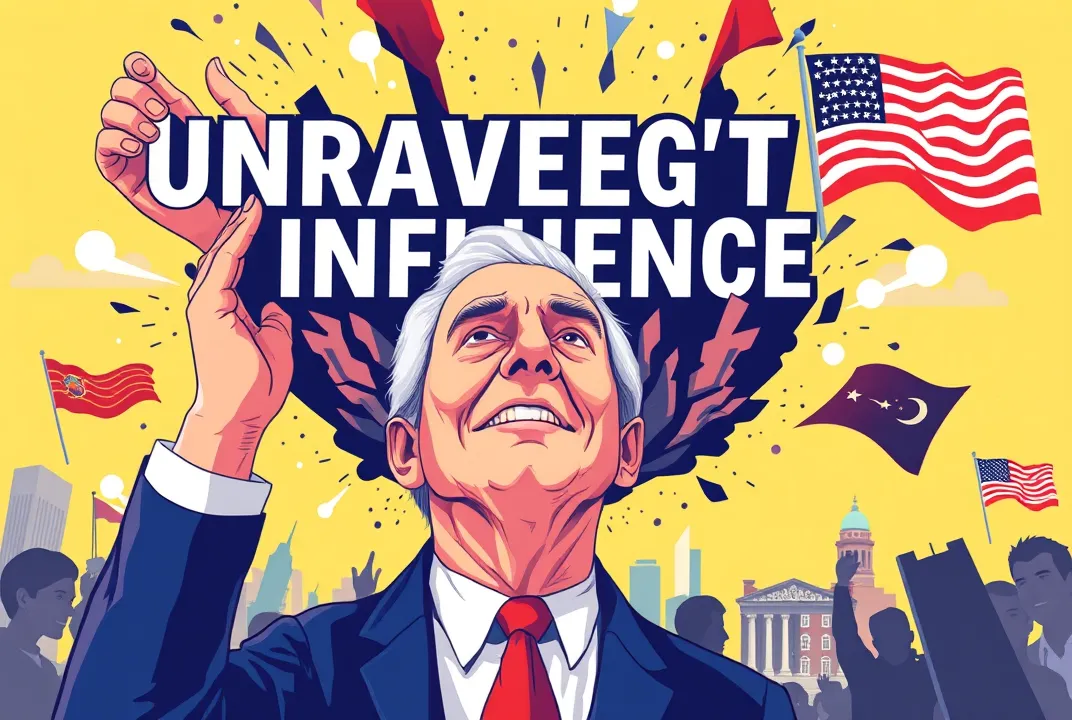Unpacking the Political Landscape: Bob Menendez’s Influence
Introduction
Bob Menendez is more than just a name in the American political arena; he embodies the complexity of modern governance. A seasoned senator from New Jersey, Menendez has navigated through a landscape marked by intense partisan divides, ethical controversies, and an ever-changing electorate. As we delve into the influence he wields and the pivotal role he plays in shaping modern politics, it is essential to grasp the nuances of his journey and the broader implications of his actions.
The Rise of Bob Menendez
Early Life and Political Ascent
Born on January 1, 1954, to Cuban immigrant parents, Menendez grew up in a working-class neighborhood in Union City, New Jersey. His upbringing instilled in him a strong sense of community and a desire to advocate for those who felt unheard. Menendez's political career began in earnest when he was elected to the Union City Board of Education in 1974. By 1986, he became the first Hispanic man to serve in the New Jersey State Legislature, marking the beginning of a remarkable journey through local and national politics.
Navigating Challenges
Ethical Controversies
In recent years, Menendez's political career has not been without its challenges. His involvement in a high-profile corruption trial in 2017 raised questions about his ethics and integrity. Although the trial ended in a mistrial and the charges were eventually dropped, the scrutiny he faced had lasting implications for his reputation and political capital. This situation highlighted the vulnerability of politicians, especially in a climate where transparency and accountability are paramount.
The Impacts of Partisanship
Menendez has also become a symbol of the partisan divide in Congress. As a staunch defender of progressive policies, he has often found himself at odds with Republican counterparts. His positions on immigration reform, healthcare, and foreign policy have drawn both support and criticism. For instance, his advocacy for comprehensive immigration reform, particularly during the Trump administration, showcased his commitment to social justice but also polarized opinions among constituents.
political influence and Legislative Achievements
Key Legislative Contributions
Despite the controversies and challenges, Menendez has left an indelible mark on American politics through significant legislative contributions. His role in crafting the Affordable Care Act and advocating for the DREAM Act demonstrates his commitment to health care and immigrant rights. Furthermore, his leadership in passing the Iran Nuclear Agreement Review Act in 2015 reflects his influence in foreign policy matters.
Menendez's ability to navigate complex legislative landscapes is further illustrated by his role as Chairman of the Senate Foreign Relations Committee. In this position, he has addressed critical global issues ranging from human rights to national security, shaping U.S. foreign policy in a rapidly changing world.
Building Bipartisan Coalitions
One of the hallmarks of Menendez's political strategy is his ability to build bipartisan coalitions. His work with Republican senators on issues such as sanctions against Russia and support for Israel demonstrates a willingness to cross party lines when necessary. This pragmatic approach not only showcases his leadership skills but also emphasizes the importance of collaboration in achieving meaningful legislative outcomes.
The Current Political Climate
A Changing Landscape
As of late 2023, Menendez's influence remains significant but is being tested by the changing political landscape. The emergence of progressive candidates in New Jersey and nationwide has sparked debates about the future of the Democratic Party. Menendez's ability to adapt to these changes will be crucial in maintaining his relevance in a party that is increasingly focused on younger, more diverse voices.
The 2024 Elections
Looking ahead to the 2024 elections, Menendez's role will be pivotal in shaping the Democratic strategy. With a competitive political environment, his experience and connections could prove invaluable in rallying support for the party's candidates and initiatives. The stakes are high, as the outcomes will not only affect Senate control but also have profound implications for national policies.
The Personal Side of Politics
A Commitment to Community
Beyond the controversies and legislative accomplishments, Menendez's personal commitment to his community remains a driving force in his political career. He often emphasizes the importance of listening to constituents and advocating for their needs. His involvement in local initiatives, such as education and affordable housing, reflects a deep-rooted connection to the people he represents.
Family and Resilience
Menendez’s journey has also been marked by personal challenges, including the loss of his father at a young age and the struggles of immigrant life. These experiences have shaped his resilience and drive, fostering a political identity rooted in empathy and advocacy for the underprivileged.
Conclusion
Bob Menendez's role in modern politics encapsulates the complexities of governance in a time of division and uncertainty. His journey from a working-class upbringing to a prominent senator illustrates the potential for individuals to effect change in their communities and beyond. As he faces new challenges and opportunities in the evolving political landscape, Menendez's influence will undoubtedly continue to shape the future of American politics. The story of Bob Menendez is not just about one man but about the ongoing narrative of resilience, advocacy, and the quest for justice in a rapidly changing world. As we look forward, his journey serves as a reminder of the importance of commitment to one’s principles in navigating the tumultuous waters of modern politics.


 Exploring Tulsi Gabbard's Impact: From Congress to Cultural Influence
Exploring Tulsi Gabbard's Impact: From Congress to Cultural Influence
 Kash Patel: Insights Into His Political Influence and Journey
Kash Patel: Insights Into His Political Influence and Journey
 Pam Bondi: Unveiling the Impact of a Legal Titan on Modern Politics
Pam Bondi: Unveiling the Impact of a Legal Titan on Modern Politics